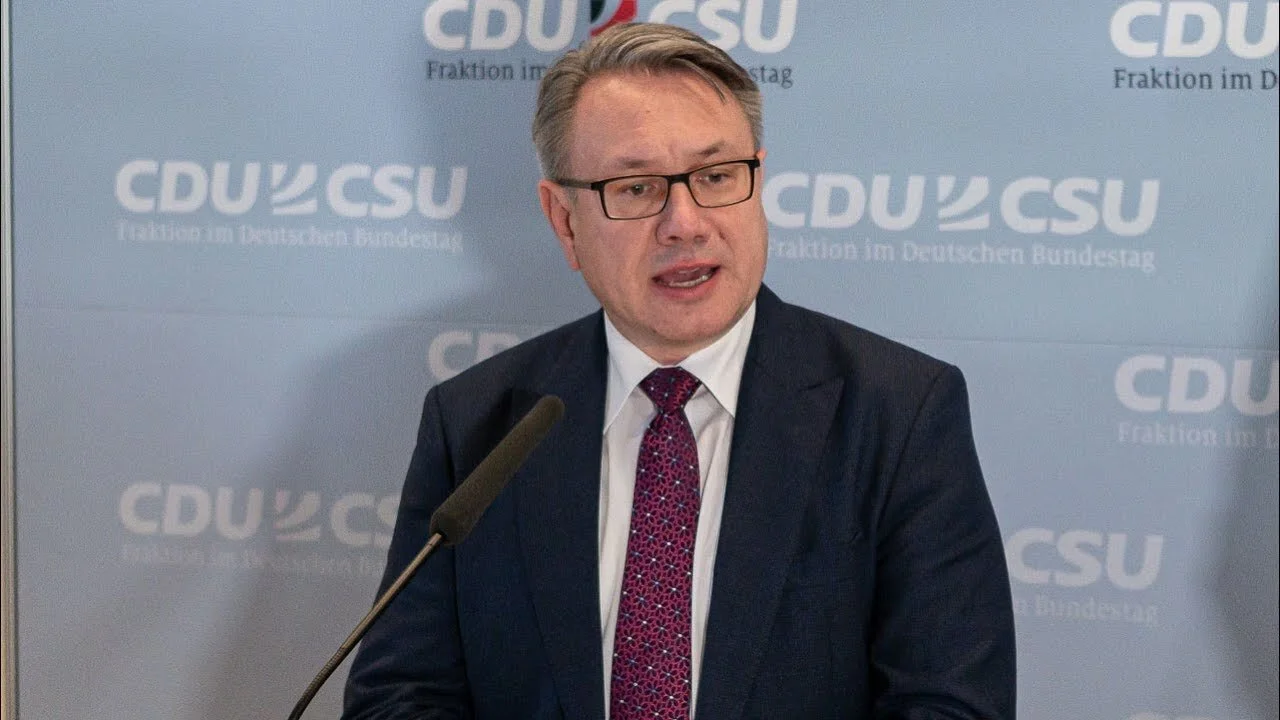Unmasked: COVID-19 Bribery Claims, Contract Conflict Hit German MPs
Two members of the ruling party in Germany's Parliament have been accused of profiting from COVID-19 mask deals that brought calls for closer scrutiny of lobbyists' dealings with politicians.
Georg Nüsslein, a member of the CSU party affiliated with Chancellor Angela Merkel's Christian Democratic Union (CDU,) faces a corruption probe and bribery allegations over mask procurements.
His company allegedly earned a 600,000 euro commission ($714,426) for helping broker between a mask manufacturer deal with the Federal and Bavarian health ministries.
Nikolas Löbel, a member of the CDU, resigned from the Bundestag after revelations his company made 250,000 euros ($297,678) on a masks contract, admitting he was involved with a business that sold them.
"I take responsibility for my actions and draw the necessary political consequences," the 34-year-old lawmaker said. "In order to avoid further damage to my party, I am resigning my Bundestag mandate with immediate effect," he added.
Susanne Eisenmann, the CDU candidate for state premier in his home state, told the news magazine Der Spiegel, “It is unacceptable for parliamentarians to enrich themselves in this serious crisis."
Nüsslein's lawyer said his client, as the pandemic raged in the country, had provided help in procuring high-quality masks at a time of crisis “with the help of longstanding contacts to Chinese providers”.
Nüsslein quit his party's parliamentary group and issued an apology but said that he would not give up his seat.
The CSU's General-Secretary Markus Blume, admitted Nüsslein was facing "serious charges" that would need to be "cleared up without any gaps,” but a party spokesperson said, “There is still the presumption of innocence.”
Nüsslein's lawyer told Reuters his client “will defend himself from the charges raised by the prosecutors," but added it was uncertain when Nüsslein will comment because of an "obviously complex investigation."
Lawmaker Dirk Wiese, from the center-left Social Democratic party, told state broadcaster Deutsche Welle that Nüsslein was reportedly bribed by the face mask producer to ensure a contract, which Nüsslein denied.
"The fact that something like this is possible is quite appalling," said Wiese. “It is also infuriating, because in those cases, the reputation of politicians as a whole is stained and that always angers me."
The affair rekindles an open debate about a proposed registry of lobbyists that would try to prevent such deals, which Germany so far has failed to introduce.
Wiese stretched it was Conservative lawmakers who were "blocking" such proposals, adding the allegations against his colleagues were a "warning shot."
The corruption allegations and frustration over the country's slow vaccination campaign were seen as affecting the CDU in state elections on March 14 in Baden-Württemberg, as the government tried to distance itself.
“This is exactly what voters have been waiting for,” wrote commentator Torsten Krauel in Die Welt newspaper. “While they went into lockdown and thousands of self-employed workers faced their ruin, delegates from the conservative bloc dealt with masks like in a bad movie.”
Markus Söder, head of the CSU party based in Bavaria said Nüsslein should quit the Bundestag too because “a clean break is better than an extension," with national elections for Parliament to determine a successor for Merkel coming September 26.

